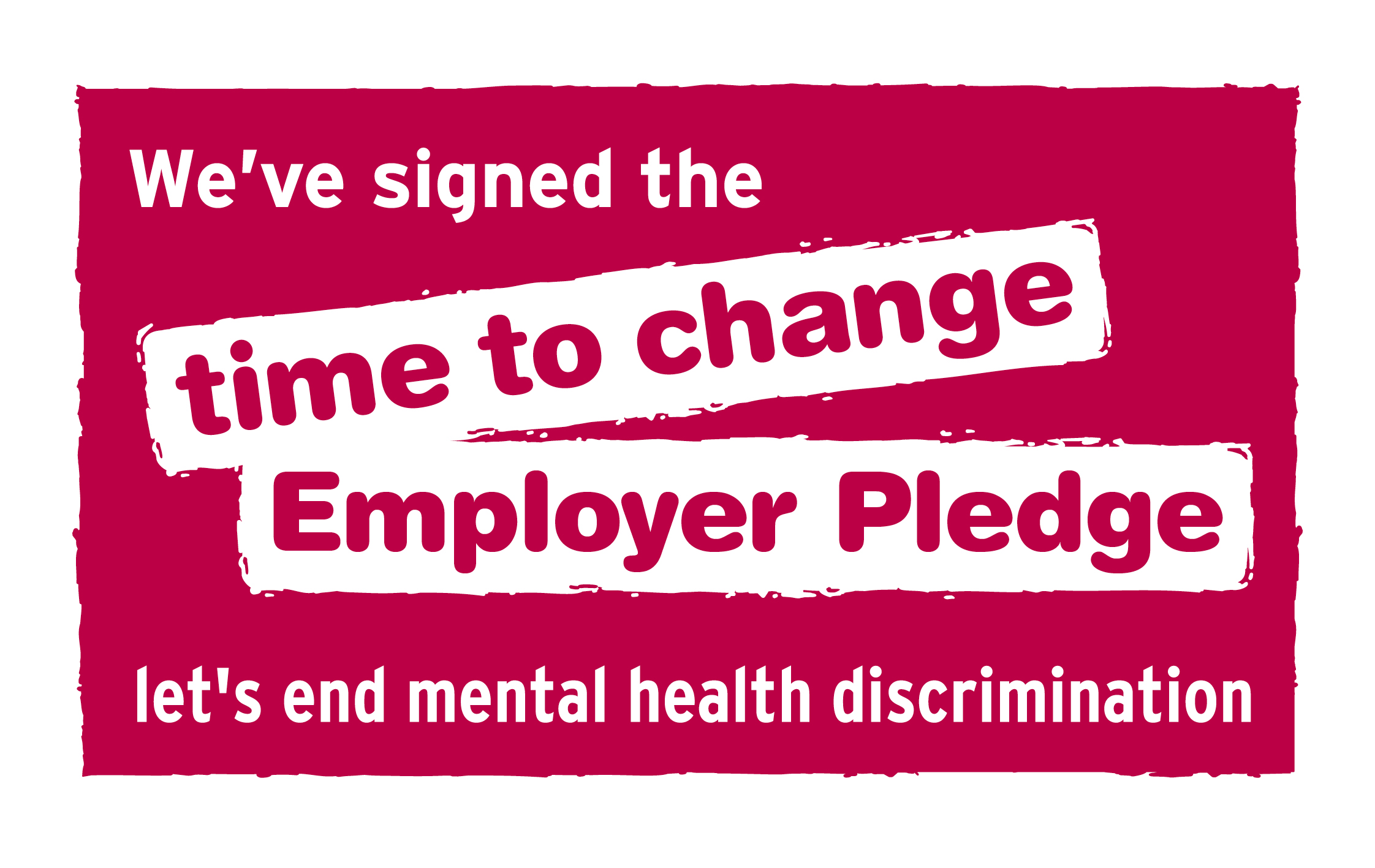
We recently participated in Finovate Fall, where we joined top fintechs and financial institutions from around the world to debate about the current state of the financial services industry and more importantly, its future. A future where the so-called ‘experience economy’ will unfold and those putting the customer at the center of their innovation will thrive. But, how to get there and remain relevant in an ever-challenging environment? Committing to a culture of technology and innovation that transforms interactions between businesses and consumers is the first step. Take financial institutions and fintechs, for example. Despite their different approaches to what it takes to serve their customers better, both traditional and non-traditional industry players agree that technologies such as artificial intelligence (AI) and machine learning play a pivotal role in their respective digital transformation strategies. But with the change comes the challenge: most of organizations recognize they still struggle to fully operationalize the output of their advanced predictive analytics. To be true to our own commitment to technology and innovation and help businesses execute machine learning models within their decision processes, we have launched a new release of our flagship decisioning platform. The latest PowerCurve release integrates machine learning to deliver a faster and better analysis of data. These actionable insights will help our clients identify the opportunities presented by each of their customers quicker and more easily. Leveraging today’s technology to sustain tomorrow’s growth We believe that enabling businesses to leverage their current technology investments to support future growth is key to ensure they get the full benefit of their commitment to innovation. The latest PowerCurve capabilities allow custom plug-ins to be added at any time to support the next generation of technology and decision-making strategies while ensuring consistent, precise and personalized experiences that satisfy consumers’ demands over time. This enhanced flexibility means that businesses can get value of their current data and technology investments today and keep at pace with the latest and most effective decision management strategies across the entire customer life cycle. In addition, PowerCurve will continue to satisfy compliance requirements and provide the necessary governance and explainability that is essential in today’s market. With the updates to our decisioning platform and incorporation of machine learning capabilities, businesses will be able to make the right decisions today, resting reassured that those decisions will remain precise and relevant in the future.

The workplace is more just than a place of business. It should be a community that supports its employees and promotes a culture where people can be their most authentic selves. That’s an ideal Experian very much understands, believes in and strives for. And because of that commitment, we’re proud to be recognized by Great Place to Work as one of the best workplaces in the country. We’ve built a workplace that encourages collaboration, creates constant innovation and supports diversity. We greatly appreciate the hard work our employees have invested to help consumers, clients and our local communities. And it’s important that we continue to support that great work. Offering health and family resources, promoting diversity programs, and carrying out employee-wellness policies are just a handful of ways Experian has helped to foster a supportive work culture for our employees. Our goal is to create a workplace where people feel accepted and their work is validated so that they can continue to perform at the very highest level. A supportive work culture contributes to a positive work experience and employee motivation. In the Great Place to Work survey completed by about 2,000 U.S. based employees, 96% reported having great pride working at Experian and 95% believe the company has a great atmosphere. Experian’s dedication to their employees has not gone unrecognized. Forbes Magazine placed Experian in the Top 100 list of the “World’s Most Innovative Companies” for the fifth year in a row, and The Orange County Register named Experian a top workplace in 2017 for the fifth consecutive year. Experian has also been recognized for its commitment to diversity by the Advancing Women in Technology organization and the Grace Hopper Leadership Index. These accolades reflect the company’s workplace culture as an environment of employee growth and success. Company success starts with the success of our employees. Building an environment where employees feel supported, challenged, and valued is a top priority for Experian. We are proud of the hard work our employees have dedicated to helping our communities and we remain committed to supporting their success.

Digital transformation is dramatically changing the way consumers and businesses interact. E-commerce and social media are setting the standards for digital experiences. The advance of fintech is driving competition. All while fraud reaches an all-time high, prompting an ever-stringent regulatory framework. This confluence of emerging technologies and intense competition adds even more pressure to grow business faster. In such a scenario, growth is fueled by acquiring more customers – those with whom you can build lasting, valuable relationships over time. However, traditional approaches for customer acquisition no longer suffice. As a business leader, how do you tackle these challenges? What can you do to attract and acquire new customers? To help answer these questions, we commissioned Forrester Consulting to survey over 900 key decision makers across industries. What we found is that getting actionable insights from complex data sources to make consistent, precise decisions is still a major challenge. The majority of executives also indicated that not having a single customer view had a direct impact on profitability. They struggle to make accurate decisions that are both meaningful for consumers and profitable for business. To overcome these challenges and realize their strategic priorities, businesses of all sizes are increasing their investment in advanced analytics and decision services. We understand that the current market environment can be daunting. But with challenges come new opportunities. We can help you modernise your digital decisioning approach to enable precise and profitable lending decisions across the life cycle. Using a unique blend of best in class data, advanced analytics and digital decision strategies you will know your customer better. As a result, you can, deliver the experiences they demand and make lending decisions with less risk. Download the executive summary of our Global Decisioning Report 2018 and discover how businesses of all sizes are leveraging data, advanced analytics and digital decisioning to better serve customers and future-proof growth.

We’re committed to creating a better tomorrow for consumers, clients, our people and our communities. Experian enables life’s biggest moments and ambitions through the confident use of data. We’re unlocking the power of this data to help people access the essentials they need to fulfil their life ambitions. As the world’s largest credit bureau operator, we have an important role to play in enabling access to finance for millions of people who could otherwise be excluded from mainstream credit and services. We help people prove who they are and build a strong financial track record. Our data and analytics also gives lenders – our clients – the information they need to make fairer, faster decisions for people who are applying for credit. We deliver our purpose through our core business activities, our social innovation products and solutions, and our corporate responsibility (CR) programme. One of these initiatives is the annual One Young World competition. One Young World was founded in 2009 with the intent of bringing together young talent from around the world who are passionate about creating social change to address the most pressing issues the world faces. For the sixth year, Experian is proud to support One Young World and every year, we send five ambassadors, one from each of our regions, to attend the summit. To become a One Young World Experian ambassador, employees were asked to submit a proposal for a new product, partnership or initiative that supports our brand purpose of Creating a Better Tomorrow. The winning submissions, one from each region, were selected to become ambassadors. Over the coming months, they will work with employees across the organisation to bring their ideas to fruition. Meet the five Experian ambassadors we will be sending to the summit in October and the projects they will be driving throughout the year to create a better tomorrow. Be sure to follow @Experian on Twitter as we’ll be posting live updates from the event in October! Jessica Childs Jessica works in the Experian Marketing Services – Product Team in North America. She has worked at Experian for almost two and a half years. Last October, she went to Puerto Rico and the Virgin Islands to help people upended by the hurricanes. This experience inspired her to think about how Experian can use data to help people who are at the highest financial risk after natural disasters. Her project is made up of two parts: preparing for a disaster and understanding the financial risks posed by natural disasters; and disaster recovery which involves providing tools and resources to be successful after a natural disaster. “I am so excited to be selected as one of Experian’s 2018 One Young World Ambassadors and to continue my work that I started almost a year ago to help victims of natural disasters who are at the highest financial risk. The amount of natural disasters continues to increase year-over-year and while there has been an incredible outpouring of volunteers and support, there is always more to be done to not only educate those at risk, but also identify victims and help mitigate the inevitable financial repercussions.” Tanya Kostadinova Tanya is part of Decision Analytics, based in Bulgaria. She has worked at Experian for a year. Early this year, Tanya participated in a giving back day, organised by the Experian CSR team in Bulgaria, to paint houses for orphaned children and children in foster care. Inspired by what she saw, her idea involves creating an application for these children to give them the best start in life. The application would include information about their labour and healthcare rights, financial advice, advice on how to find a job, and this information will be presented in simple videos and easy-to-follow quizzes. “I am very happy and excited to be working on my project. I believe this idea will increase financial education and will help these vulnerable groups of people. In this way, we will create a better tomorrow not only for them but for all of us as society.” Larissa Alfino Larissa is part of our Internal Communications team based in Brazil and has been at Experian for a year. Larissa’s project is called Open Windows, it’s a global project aimed at promoting socioeconomic empowerment for refugees by breaking down social barriers, providing essential advice and helping them to gain access to credit and social services. This information would be served through an app allied with a network of partnership with financial and social institutions for a healthy social integration. “I am honoured to have the opportunity to be part of Experian’s One Young World Ambassadors and connect with other young leaders to create a better tomorrow. Many refugees are living extremely tough lives and Open Windows would be a simple and affordable way to help financially empower them.” Laura Thomas Laura is part of our Community Involvement team in the UK&I and has worked at Experian for almost 18 months. It’s predicted that there are over 40 million people trapped in modern slavery across the globe and Laura’s idea focuses on how Experian can help find and support these people. The projects aim is to develop the Experian Modern Slavery Assistance Programme – a collection of products that could be used in partnership with anti-slavery charities to identify people being kept in slavery and help rebuild the financial identities of those freed from slavery. “I am so pleased and excited to have been selected as one of Experian’s One Young World Ambassadors for 2018. It’s an amazing feeling to be chosen and I’m eagerly anticipating all that the summit has to offer.” Jasmine Rodil Jasmine is a Product Management Associate in the Credit Services Product Management team, based in Sydney, and has worked with the company for three months. An estimated 39 million people living in India are pushed into poverty each year because of healthcare expenses (a figure that is expected to rise) and Jasmine wants to do something about it. Her vision is to create a Health and Wellness indicator to improve a person’s ability to afford and access healthcare in India. The project would involve using data to look at the patient’s journey to access healthcare and the issues they face and suggest actions to gain access to quality healthcare and health insurance. “I am not only grateful to have been selected as one of Experian’s 2018 One Young World Ambassadors but I am proud to be amongst such a talented and amazing cohort of people with the same passion as myself, to drive change.” Our Ambassadors are currently collating their top takeaways on this year’s One Young World summit in the Netherlands – we’ll be updating this blog with those insights very soon so make sure you come back to have a read about their experience.

This article is by Michele Bodda, general manager of Experian Mortgage, and co-sponsor of Experian’s PRIDE employee resource group (ERG) Like most of us in the LGBT+ community, my coming out story is more like an unfinished novel than a tightly worded chapter in a book once read and forgotten on a bookshelf. It unfolded over the years. I wasn’t always confident enough to be fully out, but I never pretended to be something I wasn’t. For me, there wasn’t a day of reckoning or a loud declaration. I arrived at this point over the years, and there were two pivotal incidents that served as catalysts for me. First, after working at Experian for several years, a male colleague stunned me when he said his feelings were hurt that I didn’t trust him enough to bring my whole self to work. I was dumbstruck by his frankness and desire to know the real me. And second, I realized I couldn’t ask my children to go through life with two moms confidently and comfortable if I wasn’t truly authentic in every aspect of my life as well. For me, coming out happens again and again. I will always need the quiet confidence to say, “I’m a mom, a daughter, a friend. I’m an executive. And yes, I am gay.” When Experian asked me to lead our company’s LGBT+ ERG, I took a moment of pause. Yes, this was a big decision, but ultimately, drawing on that confidence, it was an easy decision to make. In light of the 30th anniversary of National Coming Out Day on Oct. 11, I want to assure people wondering if acknowledging diversity is significant, it is. The difficulty some of our LGBT+ colleagues face making daily decisions about where they can be fully present aren’t merely insecurities. They are the realities of being LGBT+. No federal law exists protecting the rights of employees from discrimination based on sexual orientation or gender identity in the United States. In 28 U.S. states, employees aren’t afforded state-level protection for sexual orientation, meaning they can be fired for being lesbian, gay or bisexual, and it’s even worse for transgender members of the workforce. The fear is real for many members of the LGBT+ community – but so is the motivation to seek change and create an inclusive workforce in America. Just imagine working in America if everyone felt as safe as I do to bring their whole selves to work? The mental and emotional energy I expended hiding my whole self from my colleagues many years ago saddens me. Could I have bonded with others quicker, positively affecting team performance and achieving goals faster? Could I have helped someone else know it was OK to be fully themselves at Experian and watched them confidently come into work every day? Today, I’m not raising my voice for myself. I’m raising it on behalf of talented LGBT+ employees across the country and to tell business leaders that the economic results they’ll receive by instilling and nurturing inclusion is worth it. According to research presented at Deloitte’s IMPACT 2017 conference, organizations with inclusive cultures are six times more likely to be innovative, six times more likely to anticipate change and respond effectively, and twice as likely to meet or exceed financial targets. It’s the right thing to do. I feel fortunate to have spent the last 20 years at a company that is overt in saying it’s OK to be who you are: You are not only welcomed here, you belong here.

The following is written by Alison Sharp, Experian. Mental illness affects thousands of people in the UK, their friends, families and work colleagues. In fact, one in four of us will be affected by mental health issues at some stage of our lives. It's hard enough to experience mental health problems, without having to face the judgement, shame and isolation that often surrounds it. Today is World Mental Health Day, an opportunity for us, and others, to help raise awareness of mental health issues. However, our work to change the way people think and act about mental health problems doesn’t stop here. I am proud that our MD, Charles Butterworth, signed the Time to Change pledge last month, to help bring an end to mental health discrimination and show our commitment to supporting mental health awareness. Signing the pledge marks the beginning of a shift to make sure well-being and mental health support becomes the norm for us. I believe that the workplace should be an environment where everyone can thrive, no matter who they are. Experian joins the wide movement of more than 800 organisations that have signed the Time to Change pledge, including E.ON, British Gas, Ernst & Young, Transport for London, Royal Mail, Barclays, Shell, Pepsico, the Church of England, Sunday Mirror, Marks and Spencer, WH Smiths and many NHS trusts, universities, and local authorities. At Experian, we are dedicated to making colleagues feel more support and connected to the help we have, as and when they need it. I truly believe that mental health is something that shouldn’t be brushed off or pushed aside and I hope that if you are suffering, or know someone that is, that you have the courage to reach out for support because after all, it is OK to not be OK.


